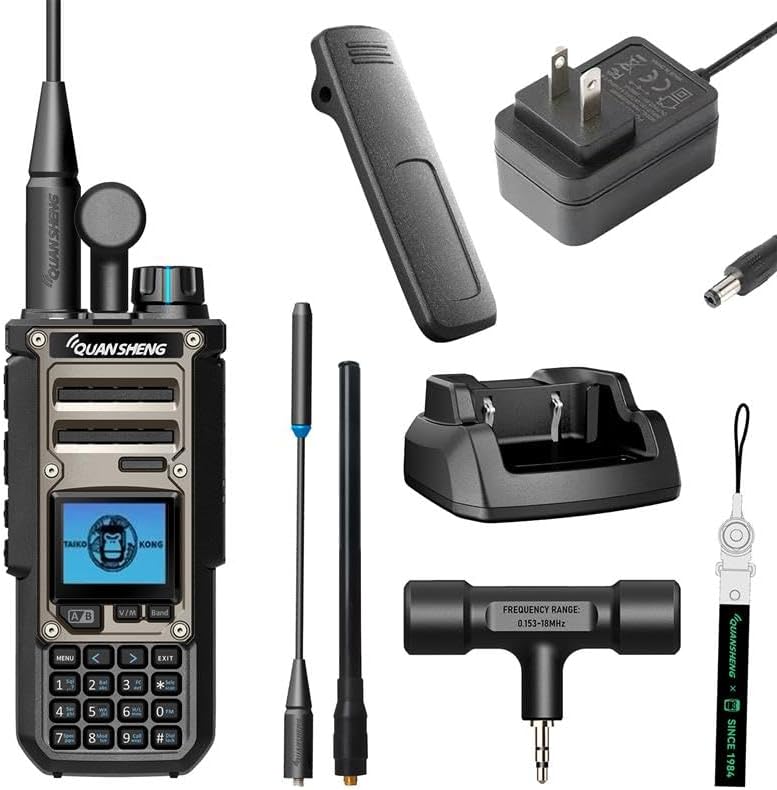When nature unleashes its fury, few forces can rival the destructive power of a hurricane. High winds, torrential rain, and flooding can disrupt communication networks, leaving communities isolated and first responders in the dark. In these critical moments, amateur radio operators—commonly known as ham radio operators—emerge as unsung heroes, using their skills and equipment to provide vital communication links.
The History and Importance of Ham Radio
Amateur radio has a rich history that dates back to the early 20th century. Originally used for personal communication and experimentation, ham radio has evolved into a crucial resource during emergencies. The Federal Emergency Management Agency (FEMA) recognizes the importance of amateur radio operators in disaster response, particularly during hurricanes.
Hurricane season can be a chaotic time, with power outages, downed phone lines, and overloaded cellular networks. In these situations, ham radio offers a reliable means of communication that operates independently of conventional infrastructures. This ability to connect people, provide updates, and coordinate rescue efforts can mean the difference between life and death.
How Ham Radio Operates During Hurricanes
1. Emergency Communication Networks
Ham radio operators are organized into networks specifically designed for emergencies. These networks often include local clubs and national organizations such as the American Radio Relay League (ARRL). When a hurricane is approaching, operators prepare their equipment and coordinate with emergency services to establish communication lines.
2. Portable and Versatile Equipment
One of the significant advantages of ham radio is its portability. Operators can set up equipment in various locations, whether at home or in temporary shelters. Many use battery-powered radios, solar panels, and mobile rigs to ensure that they can operate even when conventional power sources are unavailable.
3. Real-Time Updates and Information Sharing
During a hurricane, timely information is critical. Ham radio operators relay important updates about storm conditions, evacuation orders, and safety protocols. They also share information about the status of roads, shelters, and resources. This flow of information helps first responders and community members make informed decisions.
Case Studies: Ham Radio in Action
Hurricane Katrina (2005)
Hurricane Katrina devastated the Gulf Coast, causing widespread destruction and chaos. Ham radio operators played a crucial role in coordinating rescue efforts. They provided communication for emergency services, helped locate missing persons, and relayed important health and welfare messages between evacuees and their families.
Hurricane Harvey (2017)
During Hurricane Harvey, ham radio operators in Texas set up stations in emergency operation centers and shelters. They communicated with emergency responders, reported flooding conditions, and provided vital information to the public. Their efforts were instrumental in facilitating rescue operations and ensuring that residents received timely assistance.
Training and Preparedness
To become effective in their roles, ham radio operators undergo extensive training. Many participate in local amateur radio clubs, where they learn essential skills such as operating equipment, understanding radio protocols, and handling emergency communication. Organizations like the ARRL offer resources and training sessions focused on emergency preparedness.
Conclusion
In an age dominated by technology, ham radio remains a resilient and indispensable tool during hurricanes and other natural disasters. The dedication and expertise of amateur radio operators ensure that communities stay connected, informed, and safe in times of crisis. As we face the increasing frequency of severe weather events, the contributions of ham radio operators remind us of the power of human connection and preparedness. Whether through a simple message or a lifeline during a storm, ham radio operators prove that communication is key in overcoming the challenges posed by nature.
Check out these proven radios: https://tidradio.com/?ref=chbxrnmq

No comments:
Post a Comment